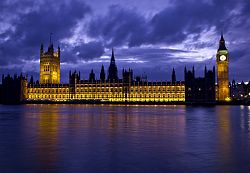

King Charles III delivered what was the first King's speech in more than 70 years, setting out the UK government's legislative agenda for the next Parliamentary session.
A total of 21 Bills were outlined that are set to pass through Parliament within the next year, with a third of these being Bills that have been carried over or had a similar version from a previous Parliamentary session.
There were a handful of new Bills that are relevant to environment, health and safety, energy and planning.
Environment and energy
This King's speech has received a lot of criticism from many green groups over a lack of commitment to net-zero and tackling the climate crisis.
There was only one Bill of any relevance to mention and that was the controversial Offshore Petroleum Licensing Bill.
This Bill would require new oil and gas drilling licenses in the North Sea to be awarded annually. The government have argued that these measures will protect jobs, and increase UK fuel security.
The speech claimed: “This bill will support the future licensing of new oil and gasfields, helping the country to transition to net zero by 2050 without adding undue burdens on households.”
The Bills announcement has attracted a lot of criticism from green groups who say the Bill will in fact do nothing to help with the cost of energy for the millions of households facing high energy bills, and will not help the UK cut emissions.
Government critics have labelled the Bill as a 'cynical pre-election ploy' and will not help with rising energy costs for households or improve energy security - companies who extract oil and gas from the North Sea aren't obliged to supply the UK.
The lack of any announcements in the King's speech to support net zero, drive down emissions and create a more sustainable economy have left many feeling dissatisfied.
Safety
Following the inquiry into the 2017 Manchester Arena bombing, the Terrorism (Protection of Premises) Bill (also known as Martyn's Law) should be passed in this Parliamentary session. It aims to ensure the public are better protected and will require those responsible for publicly accessible venues to reduce the threat to the public from terrorist attacks.
This 'protect duty' would establish a two-tier scheme for publicly accessible venues, requiring them to adopt measures to manage and reduce risks through actions such as security plans, terrorism protection training and risk assessments. The two tiers are dependent on a venues capacity, those with:
Planning
There were a couple of Bills relating to the leasehold and rental market introduced, the: